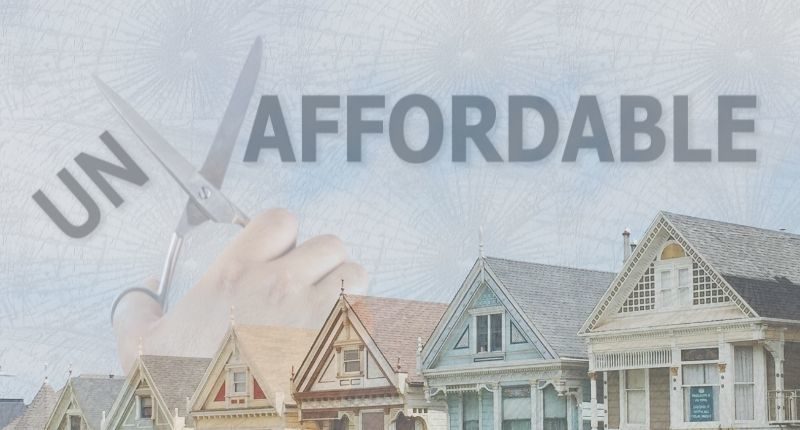- With property prices rising faster that incomes, what proportion of the market is affordable?
- Analysis from CoreLogic suggests the answer varies greatly across the country
- In Sydney, lower incomes can only afford 2.9% of properties, in Darwin, it's 62.1%
As the property market continues it march upwards, how many people are being left behind?
Housing affordability is fast becoming one of the major issues of 2021. With national dwelling prices rising 1.8% last month alone – six times the past decade’s average – the typical homeowner is having to find an additional $11,240 to afford a home, according to CoreLogic.
Naturally enough, the more money a homebuyer has, the more of the market they can afford.
Across the country, the highest 25% (quartile) of income earners can afford 85% of the properties on the market, so they have plenty of affordable choice.
Middle-income earners can buy 57% of the current residential market, whereas lower incomes can only purchase 17.6%.
How much of the property market various income-earners can buy

Around the houses
While the nationwide calculation showed middle incomes could afford 57.1% of the market, and lower incomes less than 18%, over in Sydney, the middle group can only afford 38.7% of the market, and lower incomes just 2.9%.
By comparison, in Darwin, middle incomes could buy 96.8% of the market, and lower incomes 62.1%.
- Sydney: 73% (high incomes), 38.7% (middle) and 2.9% (low)
- Melbourne: 79.4%, 43.7%, 4.2%
- Brisbane: 94.5%, 74.9%, 26.7%
- Adelaide: 93.4%, 67.0%, 14.2%
- Hobart: 94.5%, 64.0%, 7.1%
- Perth: 94.3%, 77.6%. 25.0%
- Darwin: 99.7%, 96.8%, 62.1%
“ABS lending data suggests the largest pool of buyers in the market at the moment (around 51.6%) are non-first home buyer owner-occupiers.
“In other words, much of the buyer pool are upsizing, downsizing or moving to another home. For them, the sale of an existing home creates purchasing power, rather than their income.”
Eliza Owen, CoreLogic
This is one of the reasons first home buyers are far more sensitive to price changes, and the latest ABS lending data suggest financing for first home buyers has declined by 4.8% over the past two months.
Another reason is that as prices are increasing faster than incomes, it is harder to accumulate a deposit, assuming they need to come up with 20% of the purchase price.
The past few housing booms in Australia have also given rise to terms like ‘rent-vesting’, ‘the bank of mum and dad’ and ‘fractional investing’. Despite these alternative measures, CoreLogic believes 2021 is likely to see a decline in first home buyer numbers.
Methodology
In order to arrive at these numbers, CoreLogic used modelling from the Australian National University Centre for Social Research and Methods, September 2020 income levels and the latest April dwelling price numbers.
Estimates of how much each income level can borrow were calculated based on 30-year mortgages with an interest rate of 2.44%, with a 20% deposit.
The three levels of property prices were: $376,041, $685,723 and $1,144,715.








